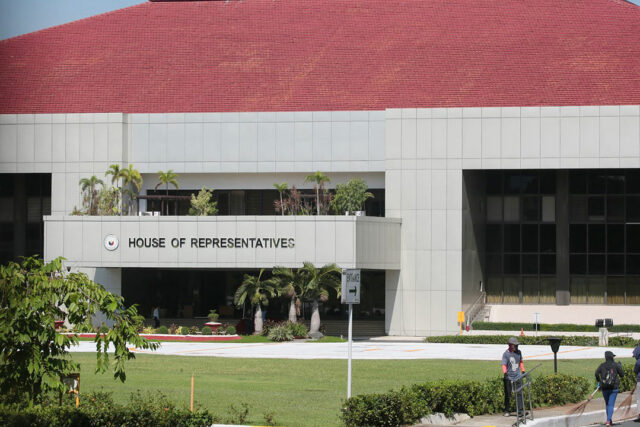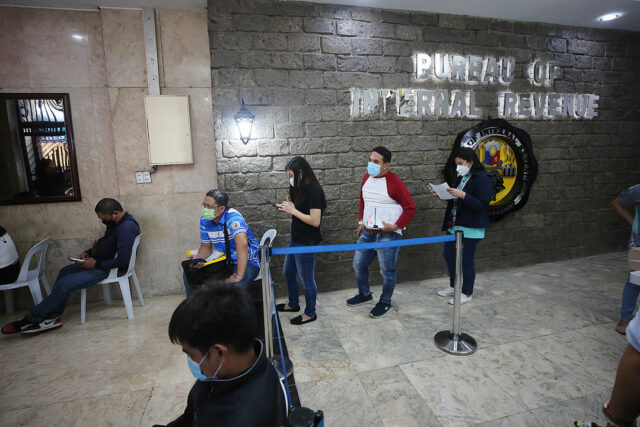By Diego Gabriel C. Robles
RULES seeking to deter multinationals from shifting profits to low-tax jurisdictions are expected to benefit high-tax countries like the Philippines, by reducing the rewards for moving profits out of the reach of domestic tax authorities, a senior legislator said.
The Organization for Economic Co-operation and Development’s (OECD) base erosion and profit shifting (BEPS) initiative, which seeks to set a global minimum tax of 15%, reduces “the incentive for tax avoidance through profit-shifting offshore,” according to Albay Rep. Jose Ma. Clemente S. Salceda, who is also chairman of the House Ways and Means Committee.
The rules against base erosion “will be good for countries like the Philippines whose corporate tax rates are still on the higher end of regional or global peers.”
One caveat was the possibility that “restricting the right of tax jurisdictions to impose other taxes on the basis of the proposed sharing scheme” will be seen as infringing on the “sovereignty of the tax jurisdiction,” he added in a message to BusinessWorld.
Mr. Salceda made the remarks after being queried on the impact of the OECD rules, which were recently discussed at a Management Association of the Philippines (MAP) conference last week.
Former consultant to the United Nations T Y Sim told the “Winds of Change: Thriving in a World of In-Betweens” that corporate taxes account for a minimal share of government revenue, and warned that profit-shifting restrictions could be disadvantageous for foreign direct investment (FDI) in developing economies.
“It seems that 15% is still lower than the global average; do corporate tax rates have more room to fall? Given this long-term trend of declining rates because of competition, you try to attract investment and things like that,” he said.
Speaking at the same event, Governor-in-Charge of the MAP Tax Committee Alexander B. Cabrera said that setting the global minimum tax at 15% was intended to deter tax avoidance and tax havens but it might be to the detriment of developing economies.
“This is going to impact our registered enterprises that are enjoying income tax holidays in the special tax regime. What the OECD rules are trying to do is if you’re operating in that territory where they don’t tax you enough, you will pay tax to your home country,” Mr. Cabrera said.
“The Philippines will not get it… (this is) a development which is favorable to the developed countries, but unfavorable to developing economies. Why? Because we need those incentives to attract people to come to us,” he added, noting how insufficient infrastructure and low ranking in ease of doing business are already deterrent enough.
Meanwhile, President of the Philippine Tax Academy Gil S. Beltran said profit-shifting rules will be beneficial for the Philippines in the long term.
“In the long run, it benefits all countries including the Philippines because comparative advantage will become the factor to determine investment location instead of tax rates and tax incentives. This removes tax competition which is unfair to developing countries with fiscal issues,” he said in a text message.
However, “the transition to lower tax rates may be difficult for some countries because income taxes account for a large bulk of government revenue. Countries may need to look for other taxes to replace the amounts foregone,” he added.
While the OECD BEP project is expected to raise $100 to $150 billion from corporate income taxes, it will not be enough to offset the deficits that governments would have to run for economic recovery.
“In Asia, you find that the corporate taxes actually form a small share of the overall pie of revenue for countries… corporate taxes (account for) 9.2% of the pie. So basically, your increase of $100 to $150 billion from the OECD BEP project globally only refers to the increase in corporate tax, and that itself is a small sliver of the entire revenue collection on average,” Mr. Sim said.
“If you look at the impact, it is not enough. The increase in taxation has to come from the larger pieces, rather than this slice in [corporate taxes] that the international tax rules are trying to change,” he added, citing individual taxes, social insurance, [and] consumption taxes as such options.
In his talk, Mr. Sim said that the OECD BEPS allows host countries to obtain a share of the profits of overseas firms that do business in the country but do not have a physical presence.
“Take note that it is not simple because there is a computation, and there’s only income that will be attributed here. That’s the positive side,” Mr. Cabrera said.
“The negative side of that is that the same rules say you cannot impose any other tax on that transaction. You know now Congress is trying to amend the tax code to impose tax on digital transactions… It’s not all favorable because of the VAT (value-added tax) element which we may not be able to impose if the law is amended,” he added.
Mr. Salceda said that under House Bill 4122, the Philippines will tax sales by non-resident digital service providers, which he noted is already an official tax policy in the rest of the ASEAN 6 (Association of Southeast Asian Nations 6).
“The OECD is a little late in that regard because most of the major developing economies have already adopted some form of a tax on digital services by multinationals. I don’t expect the ASEAN 6 to pull back on their laws on non-resident digital service taxation,” Mr. Salceda said.
“If anything, I think we should move towards establishing some form of delegated residency, in the form of designated representative offices or agents, so that our tax authorities can enforce the law more effectively without having to rely on the goodwill of the country of the headquarter office,” he added.
In the MAP event, CEO of Du-Baladad & Associates Benedicta Du-Balabad said that the government should also consider best practices overseas, such as requiring overseas vendor registration to establish the vendor’s responsibilities in collecting taxes for the government.
“Our domestic guys cannot compete fairly with all those being sold here without being taxed… We’re trying to reach out to our legislators to increase, not just for digital but for all transactions, the threshold (from) P3 million to at least P5 or P10 million,” she said, referring to the required amount for firms to register.
Mr. Salceda said that the OECD allows for some flexibility by offering as options equalization levies or withholding taxes.
“My take is that just as goods can be imported, so can services,” Mr. Salceda said, reiterating that imports pay VAT.
If realized, Mr. Salceda expects digital VAT to generate an average of P21.99 billion annually in revenue, accounting for around 0.1% of GDP.
“It’s a good number to start with as Secretary of Finance Benjamin E. Diokno wants (a) 0.3 percentage point in improvement to tax effort every year until 2028,” Mr. Salceda added.
Mr. Beltran said the government has no choice but to give internet platforms the responsibility for tax collecting as “they are the only ones we have a handle on.”
Mr. Cabrera believes there is legal basis to impose withholding taxes and make platform providers withholding tax agents.
“That’s how you capture them from an income tax perspective… The legal ammunition is there, (but) it’s how the government will execute it… Then we decide with withholding tax; let’s not be anti-trade, even a small withholding tax will do,” he said.
Mr. Salceda said that digital taxation ensures that the Philippines gets its due from the revenue generated within its borders.
“Tax expense is simply passed around from one country to another. If it is not taxed here under VAT, it will result in higher profit margins that will be taxed under corporate income in their home countries,” he said.
“When someone says imports should be tariff-free, many condemn that proposition on the basis that it will kill domestic industry. Why are we not sounding the alarm on tax-free imports of digital services? We already have an emerging domestic streaming and digital creatives sector, but they are taxed. Their foreign competitors are not taxed here,” he added.












